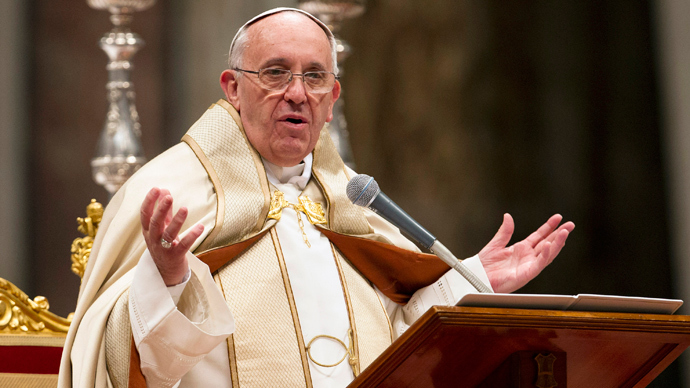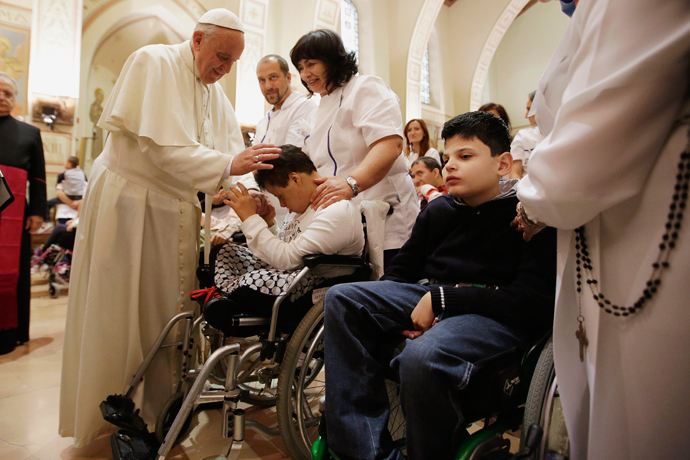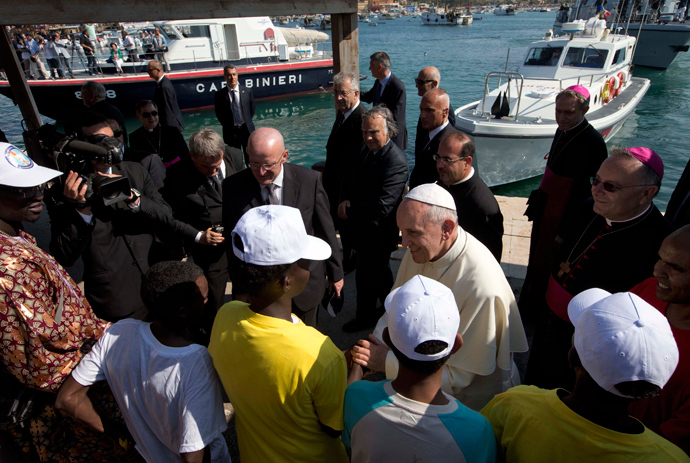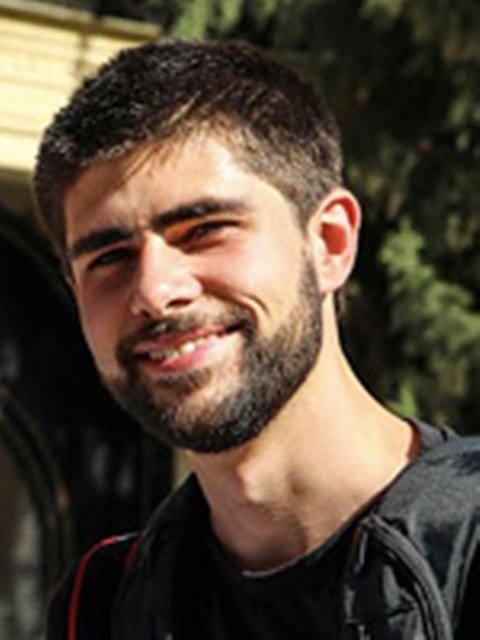Pope Francis & the globalization of indifference

In the midst of massive global inequality and economic austerity, Pope Francis’ embrace of frugality has fundamentally changed the Vatican’s narrative and breathed new life into the religious institution.
Against the backdrop of his damning critique of economic disparity, many can agree that the images of Pope Francis embracing the disfigured and washing the feet of convicts radiate the kind of humility that has been undermined by the singular dominance of capitalism and its self-centered value system.
Regardless of what faith or philosophy one subscribes to, the relevance of the Pope’s message – that capitalism has grown unmanageably reckless and tyrannical – cannot be shied away from.
The pontiff’s concept of the ‘idolatry of money’ has touched every facet of modern society. It is present in neoliberal leaders who slash social services and practice an unrestrained brand of capitalism. It’s in lobby groups and the corporate CEOs, bankers, and hedge fund managers that pull the strings of ‘democracy’ from behind the scenes. It’s in environmental degradation stemming from the mass production of consumer goods under the wasteful planned obsolescence model.
It’s also in the immoral hegemony of the military-industrial-complex; in the drive to patent organisms, plants, and animals; and in the pop-culture circus that incentivizes the unchecked dominance of consumerism, self-absorption and narcissism.
Former leaders of the Catholic Church have made similar criticisms, but it is Francis’ ability to communicate to laymen and his willingness to embrace those on the margins of society that set him apart from the gold, scandal and pomp that the Vatican has become known for.
The Pope’s reformist activism, his frugality, and his economic and political views can shape the thinking of world’s billion-strong community of Catholics, but can also create social rifts generated by those opposed to his populist philosophy.
In a marked departure from his predecessors, Francis’ criticisms – with the specific use of the term ‘trickle-down-economics’ – put him directly at odds with Catholic conservative politicians in the United States and elsewhere who have ardently supported policies that encourage tax cuts for the rich and deregulation at great public expense.
The new Pope isn't afraid to go against the grain, but to what extent is he willing to go to champion the poor, reform the church, and encourage alternatives to economic policies that have systemically transferred wealth into the hands of a few?

Dirty hands
The Pope’s choice of the name Francis suggests his admiration for Francis of Assisi, the 13th-century saint born into wealth as the son of a prosperous silk merchant who chose a life of poverty, humility and simplicity.
The Pope’s philosophy – much like that of St. Francis – offers criticisms of the church for its tendencies to indoctrinate from above and use fear to enforce its regulations of moral life; to preach but never to learn. His vision for the church is one that stands with the weak and the marginalized, one that rejects the hoarding of wealth and practices transparent financial policies.
Pope Francis’ policies also reflect his anti-corruption stance; he has directly accused the Vatican Bank of fraud, decried its shady financial dealings, and removed its head from his post over his connections to the Italian mafia.
In his recently-published apostolic exhortation, Pope Francis writes, “I prefer a church, which is bruised, hurting and dirty because it has been out on the streets, rather than a church which is unhealthy for being confined and from clinging to its own security.”
In a huge break from convention, reports claim that Pope Francis has been sneaking out of the Vatican in disguise as a common priest for late-night charity patrols.
It is also notable how the Pope has deliberately abstained from the pageantry of his predecessor, leaving behind the gold-encrusted miter and lavish throne.
Francis has called for women to have a greater role in the church, and has taken a softer stance on homosexuality than the hardline position of his predecessors, stating that homosexuals should be treated with dignity and not pressured because of their sexual orientation.
When he was elected in February 2013 as the first Latin American to head the Catholic Church, the Pope was criticized by some for allegedly collaborating with the military junta that ran Argentina from 1976 to 1983. Despite investigative journalists having accused the Pope of being complicit in the detention and torture of two Jesuit priests in the late 1970s, Pope Francis twice testified in two separate cases and has never been formally investigated.
There is a general consensus that acknowledges the lack of evidence to support claims that the Pope colluded with the right-wing Argentine junta, and numerous accounts assert his critical stance toward the regime.

Social solidarity
Critics see contradictions between his public stance of championing of the poor and his associations with hierarchy, and his personal ambivalence toward the Liberation Theology movement formed in Latin America, an interpretation of Christianity in relation to liberation from unjust social and economic conditions.
In early 2013, the Argentine judiciary issued a ruling stating that the Church was complicit in abuses that took place during the period of military rule, and some accuse Francis of not doing enough to mend the scars left on Argentine society.
Though his past is haunted by charges laid against him, the Pope has taken principled positions on various issues and is in a position to bring the grievances and concerns of the Global South to a wider internationalized platform.
On Syria, Francis adopted a strong stance against US military intervention, calling for dialogue and for the opposition to distance itself from extremists and to “openly and clearly oppose terrorism." In a letter to Vladimir Putin, the Pope decried the "one-sided interests" that are preventing a diplomatic end to the conflict and prolonging suffering.
The pontiff has also reached out to Iran, calling for closer ties between Tehran and the Vatican and increased cooperation between Catholic and Muslim scholars in an effort to settle the situation in Syria and other regional hotspots.
He is also expected to visit both Palestine and Israel in 2014, and has urged peace talks in support of the two-state solution.
Pope Francis has set himself apart for identifying the structural causes of inequality as a by-product of an economic model that espouses the absolute autonomy of markets and financial speculation, and that no global problems will be solved unless such an economic model is rejected.
His calls for “more politicians who are genuinely disturbed by the state of society, the people and the lives of the poor” put him in direct opposition to the ruling classes who perpetuate a system of great wealth transfers into the pockets of a gluttonous elite.
In stark contrast to the neoliberal philosophy recently laid out by Mayor of London Boris Johnson – who argues, “inequality is essential for the spirit of envy” needed to spur economic activity – people of various faiths and non-believers alike can agree that the philosophy of humility embodied by Pope Francis presents something of an alternative in the way of confronting the social indifference and cynicism that has become the hallmark of societies living under turbo-capitalism.
The statements, views and opinions expressed in this column are solely those of the author and do not necessarily represent those of RT.
The statements, views and opinions expressed in this column are solely those of the author and do not necessarily represent those of RT.












